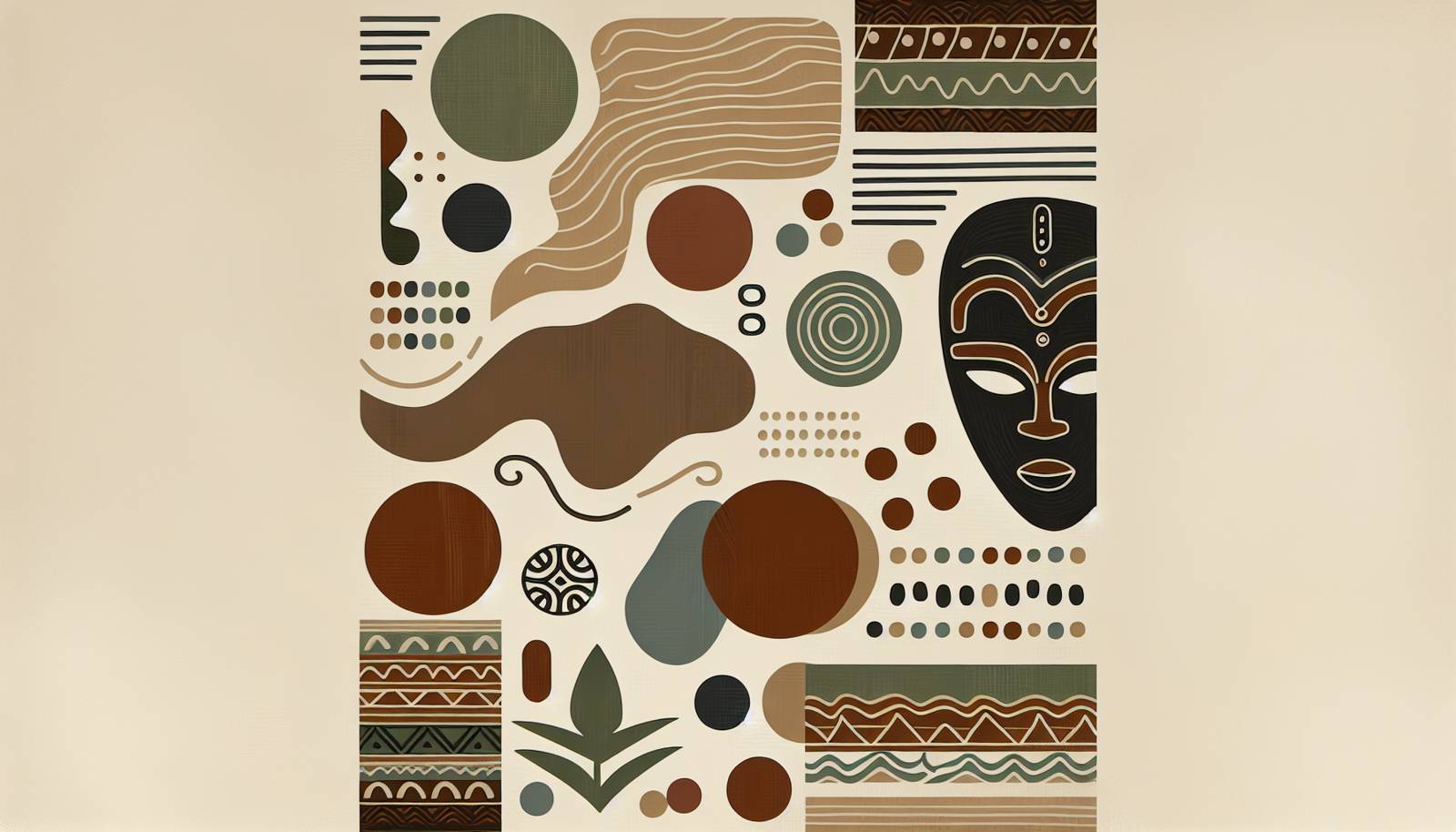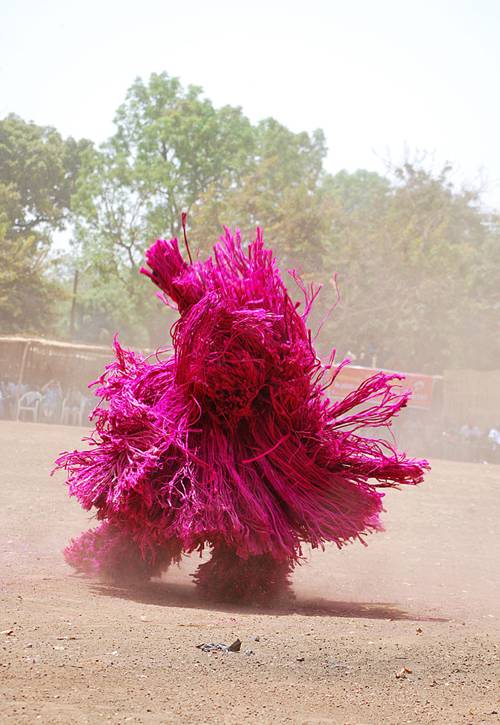
FAQ About The Cultural Significance of Mask-Making in African Festivals

What role do masks play in African festivals?
Masks are integral to African festivals as they are used in various ceremonies and rituals to represent spirits, ancestors, or deities. They play a crucial role in storytelling and are often believed to hold spiritual or magical powers, facilitating a connection between the physical and spiritual worlds. Performers wearing masks often undergo a transformation, adopting new identities that embody the characters or spirits the masks represent.

Why is mask-making considered an important cultural tradition in Africa?
Mask-making is a vital cultural tradition in Africa because it embodies artistic expression, social values, and spiritual beliefs. Each mask's design often reflects specific cultural stories, historical events, and community values. The skills involved in creating these masks are often passed down through generations, ensuring the continuity of cultural knowledge and identity.

What materials are typically used in African mask-making?
African masks are traditionally made from a variety of materials that include wood, ivory, metals, and textiles. The choice of material can be influenced by the mask's intended use, cultural significance, and regional availability of resources. Often, masks are decorated with paints, beads, feathers, and other natural elements to enhance their visual and symbolic appeal.

How does mask-making impact community identity during African festivals?
Mask-making impacts community identity by serving as a unifying cultural practice that reinforces shared beliefs and traditions. During festivals, masks help to articulate communal stories and cultural heritage, fostering a sense of belonging and continuity in communities. This practice not only strengthens communal ties but also supports the transmission of cultural knowledge to younger generations.

Can anyone participate in mask-making, or is it restricted to specific individuals?
In many African cultures, mask-making is a specialized skill often practiced by particular artists or craftsmen within the community who possess the necessary spiritual and artistic knowledge. These individuals might belong to specific families or guilds known for their expertise. However, participation in mask-related performances might be more inclusive, depending on the nature of the ritual or festival.

Are there any common themes depicted in African masks across different cultures?
Common themes in African masks often include representations of animals, ancestors, spirits, and deities. These themes may symbolize power, wisdom, fertility, protection, or other values pertinent to the community. Despite the thematic similarities, each ethnic group's masks possess unique stylistic features and meanings reflective of their distinct cultural and historical contexts.

How are masks typically used during African ceremonies and festivals?
During African ceremonies and festivals, masks are typically worn by performers who engage in dance, dramatization, or ritual activities. These performances often narrate significant cultural stories, celebrate historical events, or invoke spiritual entities. The masks help in transforming the wearer, both physically and psychologically, into the role they are meant to portray.

Is there any spiritual significance attached to African masks?
African masks often carry deep spiritual significance, as they are believed to embody the presence of supernatural forces, ancestors, or deities. Masked ceremonies can facilitate communication between the living and the spirit world, acting as mediums for blessings, guidance, or protection. The design and symbolism embedded in masks can vary greatly depending on the intended spiritual purpose.

How do artistic styles in mask-making vary across different African regions?
Artistic styles in African mask-making vary significantly across regions, influenced by diverse cultural, historical, and environmental factors. For example, West African masks may feature intricate carvings and vibrant colors, while Central African masks might have more abstract and geometric designs. Each style conveys the unique aesthetic preferences and cultural narratives of its society.

What is the historical significance of mask-making in African cultures?
The historical significance of mask-making in African cultures lies in its role as a vehicle for preserving and imparting cultural history and societal values. Masks are often used in rituals that commemorate significant events, such as harvests, initiations, and rites of passage. This tradition has helped sustain cultural heritage and reinforce community bonds through generations.

In what ways do masks influence storytelling during African festivals?
Masks influence storytelling during African festivals by providing a visual and performative element that enhances the narrative. They allow performers to embody different characters or spirits, making the stories more dynamic and engaging. Masks can symbolize various aspects of the story, such as moral lessons, cultural myths, or historical events, aiding in the education and entertainment of audiences.

How do cultural beliefs influence the design of African masks?
Cultural beliefs heavily influence the design of African masks, as these artifacts often reflect the spiritual and social ideologies of the community. For example, masks intended to represent deities might incorporate religious symbols or colors associated with those entities. The intricate designs can also convey messages about morality, power structures, or community values.

What are some common misconceptions about African masks?
Common misconceptions about African masks include the idea that all masks are the same across the continent, ignoring the rich diversity in styles and meanings. Another misconception is that masks are only used for decorative purposes, whereas they often hold deep spiritual and cultural significance. Lastly, some might erroneously view them as relics of the past rather than vibrant, living components of contemporary cultural practices.

Are African masks displayed in international museums typically the same as those used in festivals?
While many African masks displayed in international museums are originally crafted for cultural or ritualistic purposes, not all masks in museums are the same as those actively used in contemporary festivals. Some masks might be created explicitly for sale or export, lacking the spiritual and cultural significance of those made for traditional ceremonies. However, museum pieces often serve as valuable educational tools about African art and culture.

How do gender roles affect participation in African mask-making and usage?
Gender roles can significantly affect participation in African mask-making and related activities. In many cultures, mask creation and the roles of performers are traditionally reserved primarily for men. However, this is not universal across all cultures, and women may also participate in some aspects of masking traditions, either in crafting, rituals, or performances, depending on local customs.

What are some examples of famous African masks and their cultural origins?
Some famous African masks include the Fang Ngil mask from Gabon, known for its elongated features, and the Dan masks from the Ivory Coast, noted for their rounded forms and expressive features. Another example is the Dogon Kanaga mask from Mali, which is complex in its symbolism and often used in funeral rites. Each of these masks originates from distinctive cultural traditions and embodies specific symbolic meanings.

How has globalization impacted African mask-making traditions?
Globalization has had a mixed impact on African mask-making traditions. On one hand, it has facilitated the global appreciation and market for African art, potentially providing economic benefits to artisans. On the other hand, it has sometimes led to the commodification and misrepresentation of masks' cultural significance, where replicas are produced primarily for sale rather than traditional use.

Do African masks have any contemporary relevance?
African masks continue to have contemporary relevance as they are used in traditional ceremonies as well as in modern artistic and cultural expressions. Many contemporary African artists draw inspiration from traditional mask designs, incorporating them into modern art forms and media. Additionally, masks play a role in cultural identity and heritage preservation, remaining an essential part of community life and expression.

How are children educated about masks and their significance in African cultures?
Children are often educated about masks and their significance through formal education and community participation in festivals and rituals. Storytelling, practical demonstrations, and involvement in cultural activities are common methods for imparting this knowledge. Elders and knowledgeable community members play a pivotal role in passing down the historical and cultural contexts of masks to younger generations.
